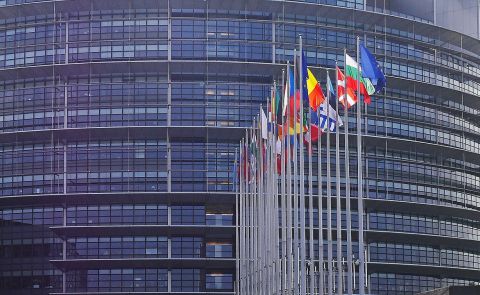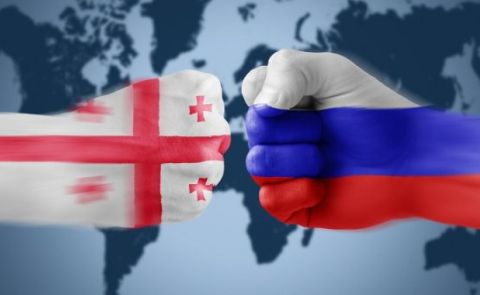
New Realities in the South Caucasus: Interview with Dr. Nadja Douglas
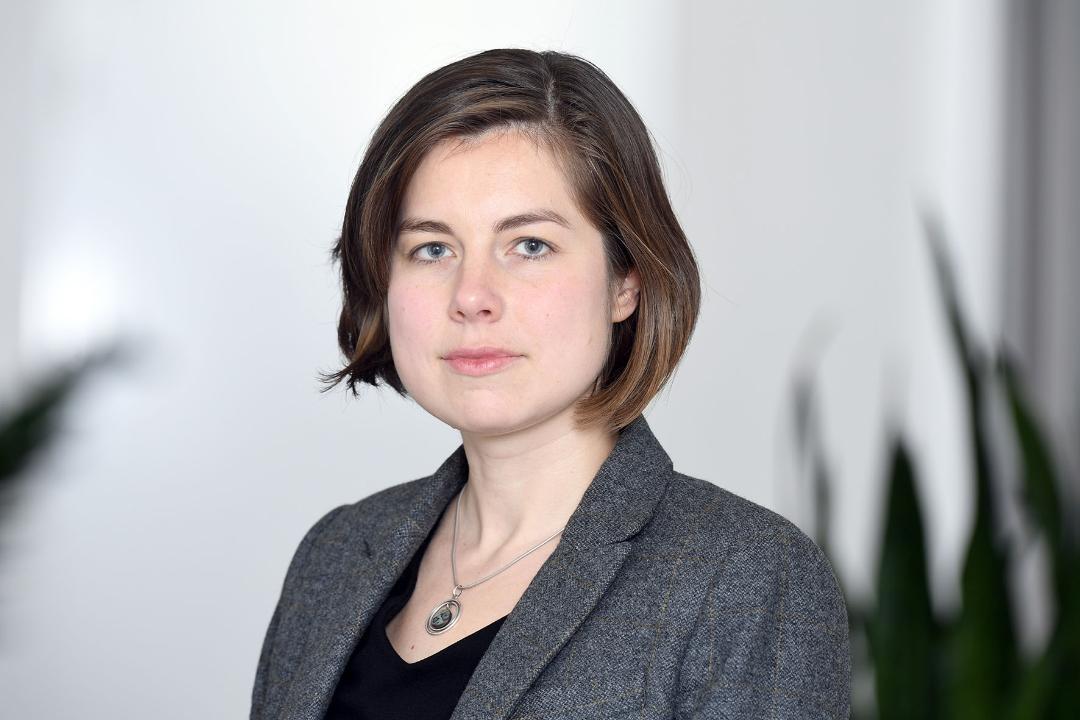
Dr. Nadja Douglas is a researcher at the Centre for East European and International Studies in Berlin. She focuses on security issues and state-society relations in the post-Soviet space.
Hello Dr. Douglas, since our last interview, a lot has changed in the Caucasus due to the renewed outbreak of war in Nagorno-Karabakh. In Armenia in particular, the post-war situation also seems to have serious domestic political consequences. Where do you see the greatest challenges for Armenian society?
The greatest challenge for Armenia is certainly to restore peace within society and to create a certain national unity in order to jointly cope with the daunting tasks that the country faces in this new chapter of its history. The task now is to organize a united response against reactionary forces because revisionist tendencies are of no help at the moment. However, that does not mean that the Armenians can afford to remain in a state of shock for a prolonged time. There is a lot of need for action and transparency, e.g. the return of political prisoners and war dead as well as the investigation of war crimes and human rights abuses that reportedly occurred on both sides during the recent war. Furthermore, questions of demarcation, the clearing of mines and other weapons, as well as the fate of internally displaced persons must be clarified. The future of Armenian religious and cultural sites on the territory that has now been recaptured by Azerbaijan is also a matter of concern. Armenian society should have a say in all of these issues. Ultimately, however, the most important thing is to stabilize the political and economic situation, which is currently on shaky ground (and was also affected by the Covid 19 crisis).
Do you think that the political situation can calm down without a resignation by Pashinyan?
No, I think that is not possible. Prime Minister Pashinyan no longer has a large majority of the population behind him. He has disqualified himself politically and morally by the tragic defeat in the 44-day war against Azerbaijan. The country's elites, including the president, the parliamentary opposition, all three former heads of state, the heads of the Armenian Church and numerous governors and intellectuals, have spoken out against him and the continuance of his government.He must clear the way for change, whether in the form of a transitional government, as requested by the opposition, or snap elections, as advocated by the ruling My-Step coalition, remains to be seen. Nevertheless, as Pashinyan himself has repeatedly emphasized, he is still responsible for ensuring that the country does not fall into chaos. Yet, a credible political alternative has not yet appeared. Even the extra-parliamentary opposition alliance that nominated former Prime Minister Vasgen Manukyan as a candidate for the parliamentary elections, does not manage to get broad sections of the population to protest, unlike Pashinyan in 2018. The conditions are currently not conducive to protest. The population is tired from the war, from countless protests and from the restrictions caused by the corona pandemic. Many guest workers had to return home from Russia and other countries due to the virus and due to the generally difficult economic situation. So, most people are currently struggling with personal, especially financial problems. In addition, it is currently extremely cold on the streets of Yerevan.
Do you believe that the peace agreement is sustainable and that it will be accepted by all Armenian factions in the long term?
That is difficult to judge from today's perspective. At the moment, all political actors, even the opposition hardliners of the “Homeland Salvation Front”, which is made up primarily of representatives of the old guard of Republicans, have realized that there is no other choice than to accept the situation. There is no leverage to revise the peace agreement. But many still rail against Pashinyan's inadequate negotiating skills and the unfavorable results for Armenia and are calling for the outstanding issues to be renegotiated with the help of Russia. Many fail to realize that such a scenario would not necessarily be in the Russian interest. Russia seems to be quite satisfied with the new status quo.
Armenia's national confidence is currently at a low. The whole society is demoralized. But that could change again in a few years, provided that a certain self-confidence is regained and forces that propagate aggressive nationalism and militancy may gain the upper hand. Large parts of society, especially in Nagorno-Karabakh itself, are still grateful that the Russians conduct peacekeeping efforts. But there are already critical, anti-Russian voices that are gaining popularity. The accusation of Russia being an occupier, which is a common feature of the discourse in all other post-Soviet conflicts in which Russian “peacekeeping” troops have been deployed, could also find its way into Armenia.
During the war and also in the reorganization of the post-war period, Western actors seem to have had little influence. Do you think the changes will affect the EU's ability to support democratization and civil society in Armenia in the future?
I think that the recent events of the Second Nagorno-Karabakh War have undermined the influence of Western actors, such as the OSCE and the EU, on societies in the South Caucasus, particularly Armenia. One result with considerable implications are the closer growing ties to Russia and an increased dependence on Moscow. The Kremlin's ability to interfere in domestic political developments in Armenia has increased significantly. It is therefore to be feared that the democratic upswing that the country has experienced since 2018 will now experience a considerable setback and that we will initially observe regressive tendencies. There is little leverage left for the EU and the projects within the framework of the EaP. As for the OSCE, Russia has successfully ousted the co-chairs of the Minsk Group (US and France) and taken the reins into its own hands. Due to the meager record after 28 years of unsuccessful attempts at mediation, some accept this or consider this even as legitimate. We have to keep in mind that the Minsk Group had previously agreed to a possible peace mission, which was repeatedly the subject of negotiations. It was intended to be a multinational one and the troop contingents were supposed to be neither from the states of the co-chairs nor from neighboring countries in the region.
Ultimately, however, Russia's solo effort is also a testament to the structural problems of international conflict mediation in the former post-Soviet sphere. The other two co-chairs of the Minsk Group payed too little attention to the region and the conflict in particular. Russia and, for some time now, Turkey have been much more involved and ultimately intervened politically (Russia) and militarily (Turkey) in 2020. To what extent these interventions were legitimate under international law or if the current Russian-led “peace mission” complies with the internationally recognized criteria and norms for peace operations is another matter. In any case, Moscow has made no secret of the fact that it does not want any political support from Washington and Paris. It rather demands more help in mobilizing international aid for the humanitarian and economic reconstruction of the region. President Putin last spoke in Davos at the World Economic Forum, saying that that the co-chairs of the Minsk Group had the joint task of rebuilding the war-torn region.
What role does Russian influence play in Armenia’s domestic affairs since the Nagorno-Karabakh war? Has Moscow been able to stabilize its influence in the region as a whole or is the development towards a strengthening partnership between Azerbaijan and Turkey rather disadvantageous for Russia?
During the war it was unclear for a while whether Russia was still in control of the geopolitical situation and developments in the region. The Kremlin made repeated attempts of mediation to bring the conflicting parties back to the negotiating table. Yet, in contrast to Turkey - at least this was the impression of external observers – Moscow remained rather uninvolved. This changed with the surprising announcement and signing of the ceasefire agreement on November 9th. As just described, Russia bypassed its international partners. Turkey has also been marginalized again. Moscow did not involve Ankara in the peacekeeping mission in Nagorno-Karabakh, but appeased Turkey by tying it into a joint control center to monitor the ceasefire on Azerbaijani territory. Russia designed the conditions listed in the agreement in such a way that they are particularly useful for Russia itself. Since the last ceasefire in 1994, both parties to the conflict had repeatedly and vehemently opposed a Russian military presence or a "peace mission" on the ground. Now, both Armenia and Azerbaijan had to agree to this. Azerbaijan, spurred on by its territorial recoveries, consequently agreed to terms that it would have refused under other circumstances, while Armenia no longer even had a choice and was not able to even influence the settlement for the status of Nagorno-Karabakh. The bottom line is that Russia has been able to stabilize its influence in the region, although two developments may have worried Russia. One is the unscrupulousness with which Turkey invaded Russia's sphere of influence and had a significant military influence on this conflict. The other is the significant military defeat suffered by the Armenian military, armed primarily by Russia, compared to the far superior Azerbaijani armed forces, armed with strategically important combat drones.
What impact will the war and the new peace agreement have on the relations between Armenia and Azerbaijan?
The war and the consequent peace agreement triggered very different developments in Armenia and Azerbaijan. While the Azerbaijani people are celebrating themselves as a victorious nation, triumphing over the Armenians, an aggressive nationalism is taking hold in the country. The Armenians are primarily struggling with themselves and are first of all dealing with a national trauma. Unfortunately, both societies are riddled with vindictiveness. Numerous Azerbaijanis are finally trying to atone for the suffering of the past that resulted from their displacement and destruction. Many Armenians, on the other hand, are considering how the now lost areas in and around Nagorno-Karabakh can be regained in the future. Proclamation by personalities like the Azerbaijani presidential advisor Hikmet Hajiev that the conflict has been resolved and that a real peace is now achievable come from a superior attitude. The Armenians are a very proud nation and see the situation differently. They feel that they have been thrown back by decades and, from their perspective, will have to start all over again. As long as there is no solution to the status of Nagorno-Karabakh, neither a solution to the conflict nor a peace is conceivable for them. A real lasting peace can only arise if the two conflicting parties will meet on an equal level again. That will probably not happen in the foreseeable future.
Do you think there will be any significant changes in the relationship between Armenia and Turkey?
The relationship between Armenia and Turkey was disrupted and has only deteriorated further due to the military support that Turkey provided to Azerbaijan during the 44-day war. The Armenians were particularly outraged by the illegal use of Syrian-Islamist mercenaries by Turkey. At times, government officials in Yerevan argued that a second genocide was imminent and that Turkey would finally wipe out Armenia. Approaches or attempts to normalize the relationships, like the Turkish outreach to Armenia in 2009, have become unthinkable from today's perspective. What would be conceivable, however, is an easing of the closed border regime between Turkey and Armenia. Part of the 9 November ceasefire agreement is a provision to unblock economic and transport links in the region. This is a current topic of the recently convened trilateral working group, consisting of the conflict parties and Russia.
See Also

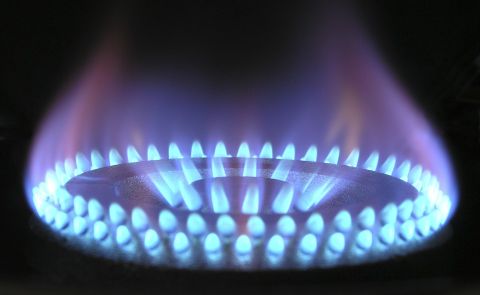
Georgia Imports More Russian Natural Gas Than Azerbaijani Gas for the First Time in 18 Years
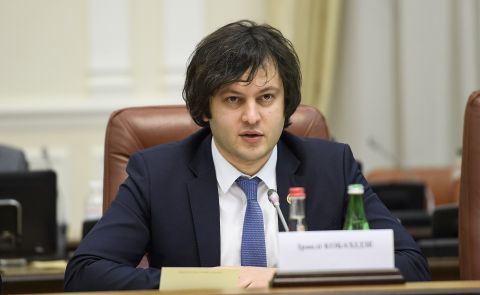
Irakli Kobakhidze Appointed Chair of Georgian Dream Party
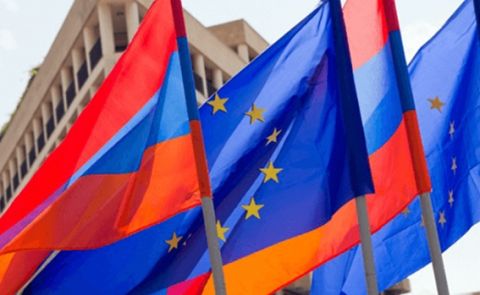
Armenia Aligns Consumer Law with EU Standards in New Reform Bill
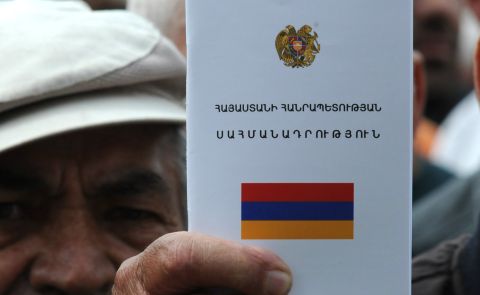
Armenia’s New Constitution Underway, Public Review Promised
